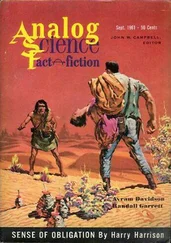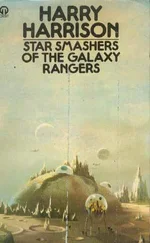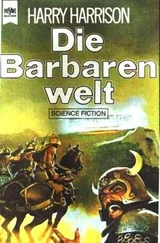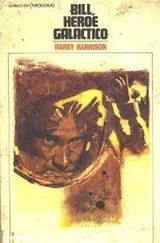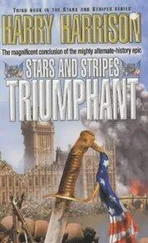Harry Harrison - Stars and Stripes In Peril
Здесь есть возможность читать онлайн «Harry Harrison - Stars and Stripes In Peril» весь текст электронной книги совершенно бесплатно (целиком полную версию без сокращений). В некоторых случаях можно слушать аудио, скачать через торрент в формате fb2 и присутствует краткое содержание. Год выпуска: 2000, ISBN: 2000, Издательство: Hodder & Stoughton, Жанр: Альтернативная история, на английском языке. Описание произведения, (предисловие) а так же отзывы посетителей доступны на портале библиотеки ЛибКат.
- Название:Stars and Stripes In Peril
- Автор:
- Издательство:Hodder & Stoughton
- Жанр:
- Год:2000
- ISBN:978-0-340-68919-6
- Рейтинг книги:4 / 5. Голосов: 1
-
Избранное:Добавить в избранное
- Отзывы:
-
Ваша оценка:
- 80
- 1
- 2
- 3
- 4
- 5
Stars and Stripes In Peril: краткое содержание, описание и аннотация
Предлагаем к чтению аннотацию, описание, краткое содержание или предисловие (зависит от того, что написал сам автор книги «Stars and Stripes In Peril»). Если вы не нашли необходимую информацию о книге — напишите в комментариях, мы постараемся отыскать её.
Stars and Stripes In Peril — читать онлайн бесплатно полную книгу (весь текст) целиком
Ниже представлен текст книги, разбитый по страницам. Система сохранения места последней прочитанной страницы, позволяет с удобством читать онлайн бесплатно книгу «Stars and Stripes In Peril», без необходимости каждый раз заново искать на чём Вы остановились. Поставьте закладку, и сможете в любой момент перейти на страницу, на которой закончили чтение.
Интервал:
Закладка:
“You are of a much sorrowful aspect,” Abraham Lincoln said when Judah P. Benjamin was ushered into his office. The portly Southerner nodded silent agreement, his jowls wobbling. He dropped heavily into a chair but did not speak until John Nicolay, Lincoln’s secretary, had left, closing the door behind him.
“I am beset by troubles, sir, burdened by sorrows. It seems that when I lay down one encumbrance I pick two more up. Changing an entire society and how it thinks and works is no easy thing. This process of change — what shall we call it?”
“Reconstruction?” Lincoln suggested.
“Not quite — because nothing has been torn down to rebuild. I think ‘reformation’ is more accurate. We are reforming a whole society and no one seems to like it. The Freedman’s Bureau is still a shell, filled with volunteers who wish to do good for the former slaves. The freed slaves are unhappy because freedom does not seem to have changed their situation. But for everyone that wishes them well, there are a dozen who wish to impede all progress. Mississippi planters are still seeking larger payments for freeing their slaves. And when those slaves who are freed seek work in the plantations, why, they are offered financial remuneration at a starvation level. The only ray of hope in the entire process is the working classes. Soldiers who return from the war are finding jobs rebuilding the railroads, as well as in the new industries that we are founding. They are paid hard cash for their labors and that helps the economy at large. But even there we find dissension. When freed Negroes seek work in these factories the white employees often refuse to work beside them. The planters are displeased at anything and everything we do and they fight us at every turn. Even the small farmers grow angry when they discover that land has been purchased for freed slaves… I hesitate to go on.”
“No bright ray of hope in all of this night of misery?”
“Yes, some, of course. I have been diverting funds from the Freedmen’s Bureau to the Negro churches and mutual benefit societies. They are our salvation. They are already respected among the Negro community and able to funnel aid and monies to individuals in need. Yet with all the organizations working on our side — I see a darker force being assembled. We must never forget that slavery has always been a central institution in Southern life. It has been simultaneously a system of labor, a form of race relations, and the foundation of a distinctive regional ruling class. Men who see themselves as the pinnacles of society feel that their position is threatened. They feel themselves marginalized in the new South — which is true. As money moves from the land to the factories a different elite is being born. And the planters do not like it. Therefore it is not surprising that there are men of violence who wish no change in the South. As well as others who accuse us of putting the black man before the white. I am possessed of a great fear.”
“You must be strong, Judah. All of us must. But you most of all because you have picked up this immense burden. Nothing of this sort has ever been done before, no society has labored so to change the way things are done. Neither let us be slandered from our duty by false accusations against us, nor frightened from it by menaces of destruction to the government, nor of dungeons to ourselves. Let us have faith that right makes might, and in that faith let us to the end dare to do our duty as we understand it.”
“I pray I have that strength, Mr. President, for at times I am terribly tired. It is the hatred of my fellow Southerners that wounds the most. Men I have known for years, who behind my back call me traitor.”
There was little that Lincoln could answer to that. He went through the records that Benjamin passed over to him, and on paper there seemed to be progress. Slaves freed, payments made — to former slave holders and demobilized soldiers.
“You are doing well, very well indeed,” Lincoln said, arranging the reports into a smooth pile. There was a light tap on the door before Nicolay came in.
“Mr. President — you wanted to know when Mr. Mill arrived. He is here now, and his daughter is with him as well.”
“Even better. He has talked much of her. Show them in.” He turned to Benjamin. “I’m most glad that you were here when he arrived. When spirits lag Mill can be of great support.”
They both rose when John Stuart Mill entered with his daughter.
“President Lincoln, and Mr. Benjamin, may I present my daughter Helen.”
Helen was a plain girl, wearing simple clothing. Yet she had the same sparkle of curiosity in her eyes as her father. A warm smile touched her lips as she gave a slight curtsy.
“Your father has spoken of you in most glowing terms,” Lincoln said. “Both as an inspiration and an aide in his works.”
“Father is too kind, Mr. President. He is the genius in the family.”
“Who would be that less of a genius,” Mill protested, “had it not been for the tireless support of you and your dear mother.”
“I must thank you both,” Benjamin said, “for your aid and advice when this country was in dire need. If your plans are followed we will have a new country — and particularly a new South that will be born out of the wreckage of the old.”
“Not my plans, Mr. Benjamin. I have just pointed out and explained some economic truths. Science evolves as man evolves. We must build on the past. Ricardo was a great man and his economic theories led philosophers, including myself, onto the path to greater knowledge.”
“My father is being too modest,” Helen said. “The followers of Ricardo had rigidified his objective findings into a straitjacket for society. When he wrote his famous book, The Principles of Political Economy and Taxation, he formulated certain rules that his followers have treated with almost holy respect. They believed without questioning his laws which he said regulate the distribution, between the different classes of landowners, capitalists and labor, of the produce of industry. My father was one of the very few who did not take Ricardo’s laws as holy writ. What my father said was transparently obvious — once it had been said. He said that it doesn’t matter if what they called the natural action of society was to depress wages, equalize profits or even raise rents. It was only natural if people believed that it was natural.”
Mill smiled and nodded agreement. “I’m afraid that, as always, my daughter has cut to the core of the problem. Though I am a bit more humble as I stand in the shadow of a great man. Without Ricardo to build upon I could never have seen the correct path that we must follow. If society does not like the “natural” results of its activities it has only to change. Society can really do anything that it desires. Society can tax and subsidize, it could give all of its wealth to the President to spend as he willed. Or it can run a gigantic charity ward. But whatever it does there is no correct distribution, or at least none that economics has any claim to fathom. And that process is what is happening in the South. An almost completely agrarian society is being turned into a modern industrial society. Railroads need factories which need coal and iron — and all of them need workers. These workers receive wages which they in turn pay for products, so the economy thrives. There is nothing natural or inevitable about how a society develops. Changing moral values can drive a society to new heights of success.”
Judah P. Benjamin smiled wryly and shook his head. “And there, as the bard said, is the rub. Too many in the South do not want to change their moral values and they yearn for the old and simplistic values, with the few governing the many and the Negro at the very bottom, enslaved and helpless.”
Читать дальшеИнтервал:
Закладка:
Похожие книги на «Stars and Stripes In Peril»
Представляем Вашему вниманию похожие книги на «Stars and Stripes In Peril» списком для выбора. Мы отобрали схожую по названию и смыслу литературу в надежде предоставить читателям больше вариантов отыскать новые, интересные, ещё непрочитанные произведения.
Обсуждение, отзывы о книге «Stars and Stripes In Peril» и просто собственные мнения читателей. Оставьте ваши комментарии, напишите, что Вы думаете о произведении, его смысле или главных героях. Укажите что конкретно понравилось, а что нет, и почему Вы так считаете.

